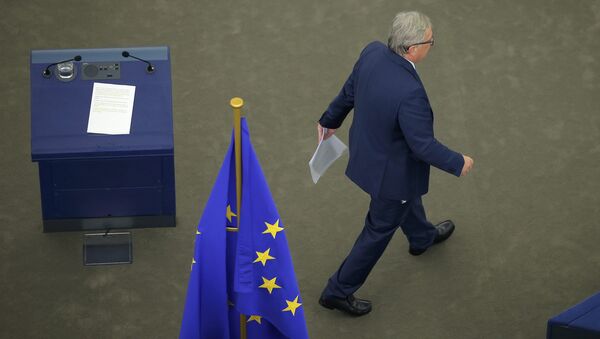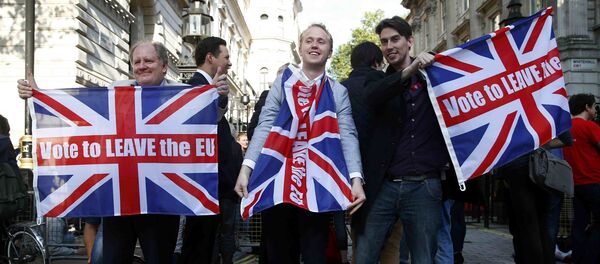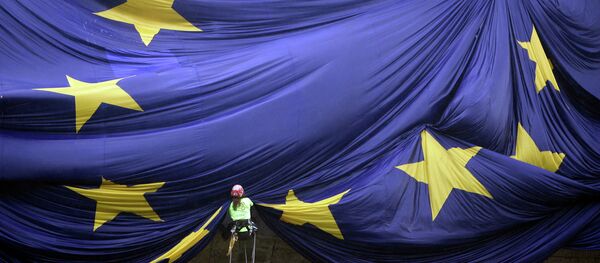The interview came after Juncker delivered his annual State of the Union address during which he said, in particular, that Brexit poses no threat to the EU, but that the bloc regrets the UK's decision.
The speech came several days before 27 EU leaders – without British Prime Minister Theresa May – are set to meet in Slovakia to discuss Europe's future after Brexit.
"I think that politically, the most important point is his [Juncker's] initiative to try to reassure people that the European Commission and the European Union can deliver on security, an issue Europeans are worried about," Kartheiser said, referring to Juncker's plan to create a European military structure.
"Most Europeans are concerned about the border security and the threat of terrorism, among other things, which should be addressed in different ways. As for the initiative announced by Juncker, it is an attempt to reinforce federalist Europe, and nowadays people in Europe don't want it, so it is not a welcome initiative," he said.
Regarding Brexit, he said that "some people in Europe are now trying to profit from the fact that Britain is leaving the EU to create a sub-structure, but this is not a realistic prospect."
"The United Kingdom is, of course, absolutely interested in European defense," according to Kartheiser.
"Let's be very clear, nobody needs the European Union as an institution to reinforce military cooperation in Europe. I think the European Union just tries to put itself on the map in order to reinforce its competence and its own grip on European policies," he said.
"With so many rifts currently in place in the EU, endorsing a political initiative that aims to reinforce the EU's federalism is probably not a useful idea," according to him.
During his State of the Union speech, Juncker announced plans to double the capacity of the European Investment Bank, which will provide assistance not only to member-states, but to other countries as well.
At the same time, Juncker stated that the planned EU military force should complement NATO, stressing that lack of military cooperation is costing the EU countries hefty sums.
To tackle the problem, the European Commission President proposed to create a European Defense Fund.
Juncker, whose approach to Europe's refugee crisis mirrors that of German Chancellor Angela Merkel, was far less bellicose last month when addressing the European Forum Alpbach, where he said "Borders are the worst invention ever made by politicians," adding that Europe must show solidarity with refugees.
On June 23, the United Kingdom held a referendum to determine whether or not the country should leave the European Union. According to the final results, 51.9 percent of voters, or 17.4 million people, decided to support Brexit, while about 16.1 million opposed it. However, UK Prime Minister Theresa May has repeatedly said she would not trigger the Article 50 of the Lisbon Treaty on leaving the bloc until early 2017.






